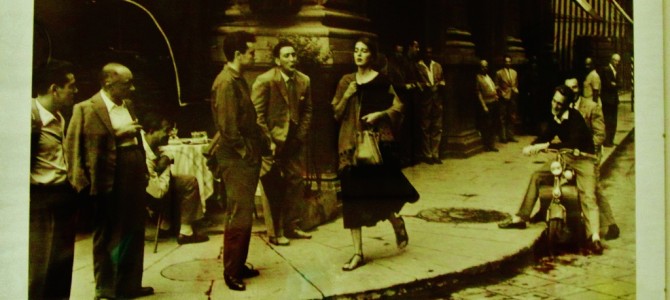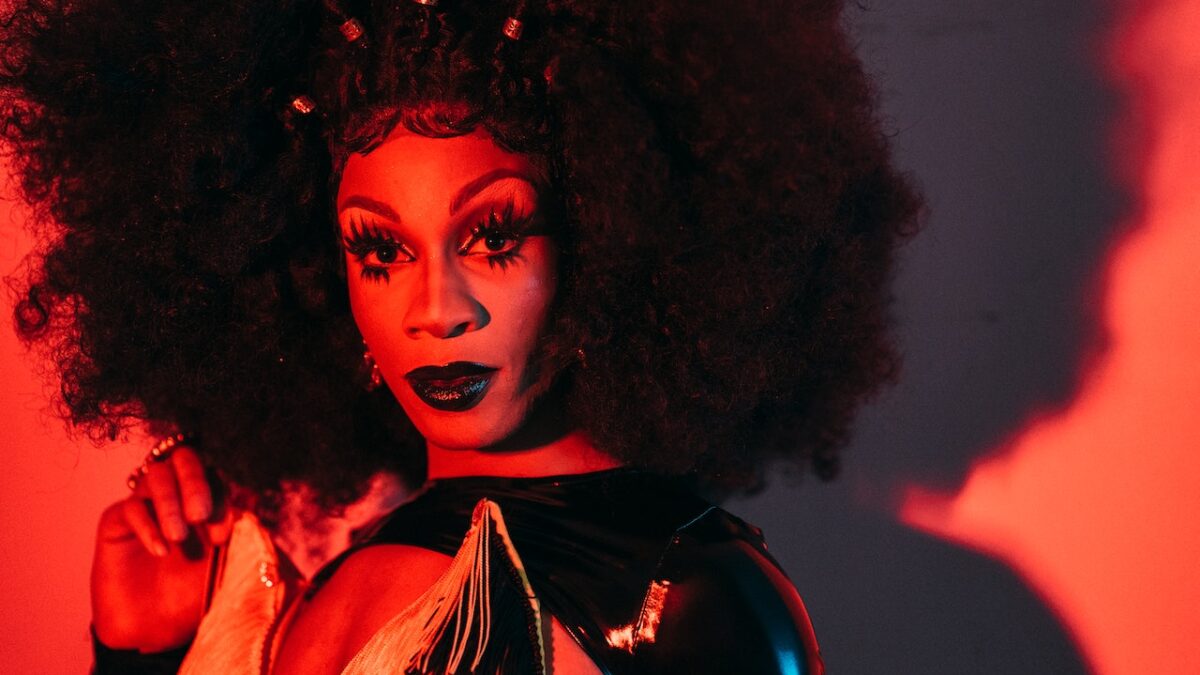It’s easily Ruth Orkin’s most famous photograph. A gorgeous woman is walking with determination down a busy street in Florence as a dozen men are captivated by her. Some are staring, others are ogling, one man seems to be grabbing his genitals. Talk about street harassment!
Last week a 90-second snippet of a 10-plus-hour walk through New York City went viral, with the help of a massive public relations campaign. Now we’re embroiled in one of those nationwide discussions on street harassment. And that’s fine, as far as these things go. Some men behave boorishly and this victimizes some women.
But when the Orkin photo turned 60 years old, a few years ago, the woman it captured talked about what the photo does and doesn’t represent:
“Some people want to use it as a symbol of harassment of women, but that’s what we’ve been fighting all these years,” [Ninalee] Craig said in a telephone interview from her home in Toronto. “It’s not a symbol of harassment. It’s a symbol of a woman having an absolutely wonderful time!”
The woman explained, in an interview with Today, how the photo was shot during another staged walk through a major world city. In her case, she’d met photographer Orkin at the hotel she was staying at. Craig was only 23-years-old and had left a job and gone on a ship bound for Europe at a low fare. She spent months going solo through France, Spain and Italy. She tried to do it as cheaply as she could. Orkin was 29-years-old and another adventurous solo female traveler.
They both agreed that they were having a wonderful time and decided to photograph what it was like being a solo female in Florence at that time. So they spent hours on the street as Craig — wearing a bright orange scarf — flirted in cafes, gawked at statues, and was leered at by men.
Both Craig and Orkin’s daughter Mary Engel agree that “the photo is primarily a celebration of strong, independent women who aren’t afraid to live life.” Craig has some insight worth reading:
“Men who see the picture always ask me: Was I frightened? Did I need to be protected? Was I upset?” Craig said. “They always have a manly concern for me. Women, on the other hand, look at that picture, and the ones who have become my friends will laugh and say, ‘Isn’t it wonderful? Aren’t the Italians wonderful? ... They make you feel appreciated!’”
Craig said she certainly did feel appreciated in Italy and elsewhere in Europe. She turned plenty of heads wherever she went because she was 6 feet tall and traveling alone. She knows the men in the photo appear to be leering and lascivious, but she insists they were harmless. “Very few of those men had jobs,” Craig said. “Italy was recovering from the war and had really been devastated by it … I can tell you that it wasn’t the intent of any man there to harass me.” OK, but how about the man committing that not-so-innocent-looking gesture with his hand? “That young man is not whistling, by the way; he’s making a happy, yelping sound,” Craig said. “And where you see him touching the family jewels, or indicating them, with his hand — well, for a long time that was considered an image people should not look at. That part was airbrushed out for years ... But none of those men crossed the line at all.”
There is something interesting about a world where a young woman traveling alone feels empowered as she walks through a crowd of men “appreciating” her (or “street harassing” her, if you prefer) and one where a woman feels victimized. Certainly there are actions that are straight up harassment but much of what happens in street interactions is something much grayer. Is it better to teach women to feel victimized by such behavior or empowered by it?
One of the things missing from the conversation about the viral street harassment video is the fact that women have — or used to have, at least — quite a bit of sexual power. As sexual mores change radically, that sexual power seems to have diminished even as we’re told that the opposite has taken place.
Craig’s interview ends with the then 83-year-old her saying, “My life has been wonderful. I’m ready for more.” That’s a fierceness and a vitality that seems to be missing from our modern grievance culture.









